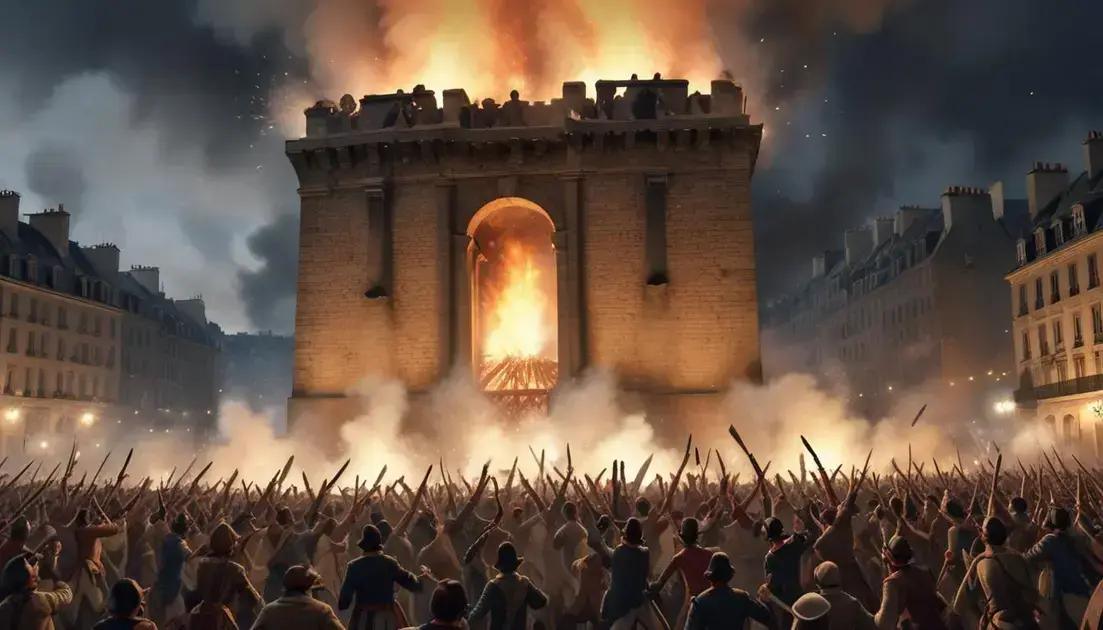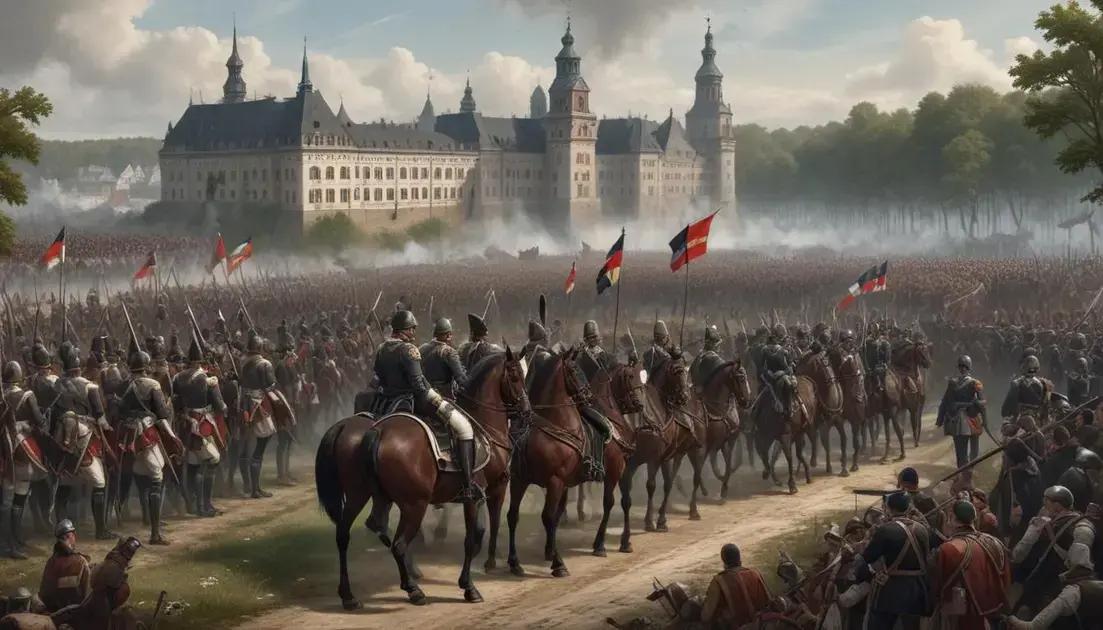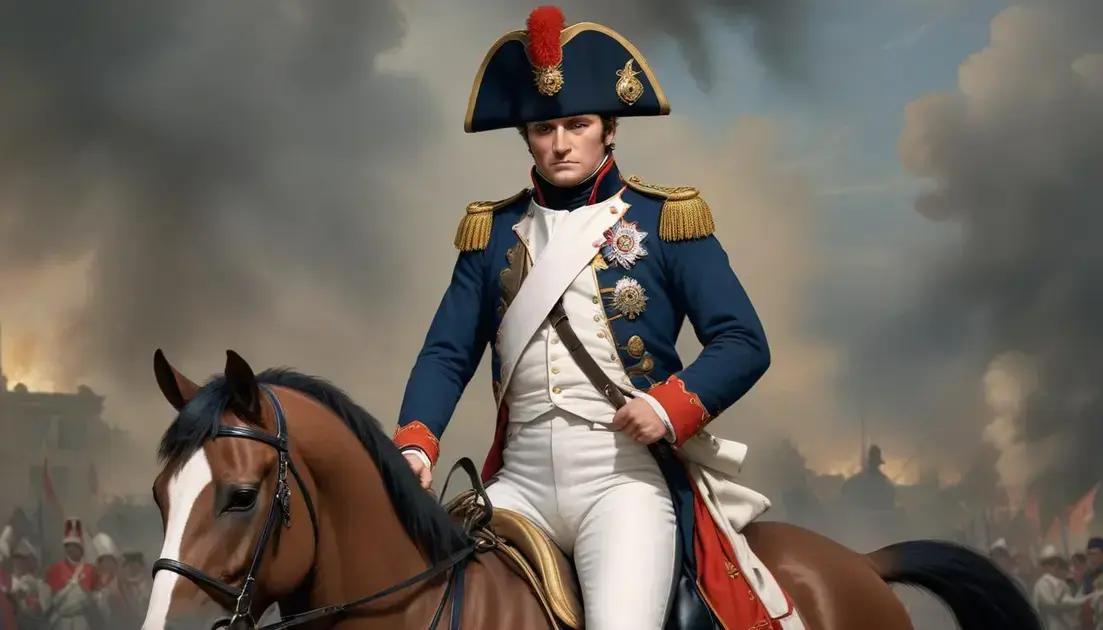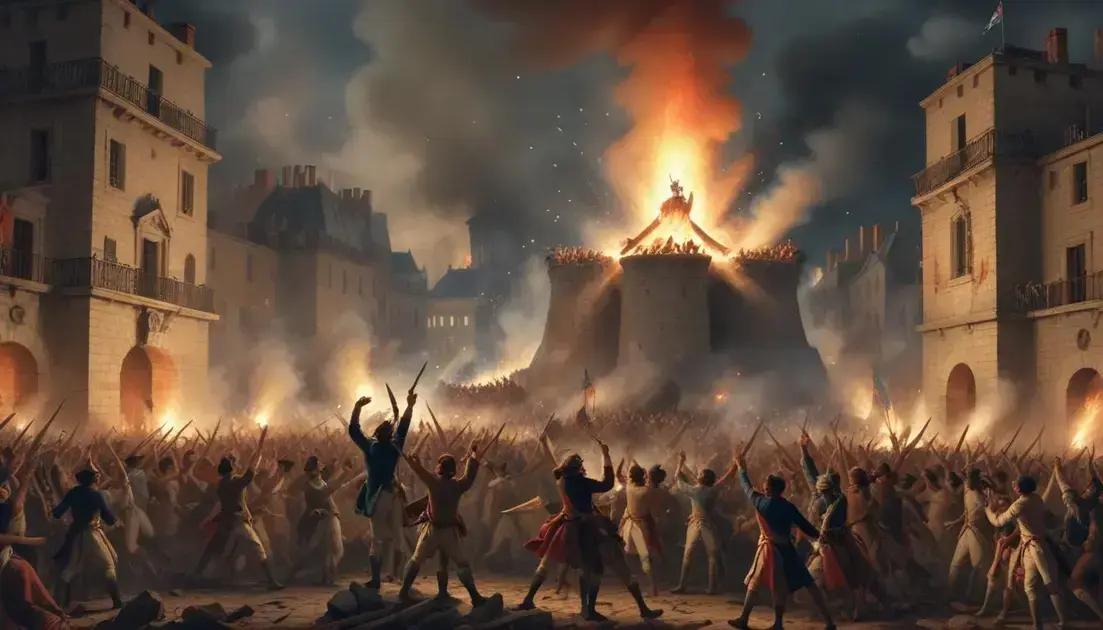
French Revolution: Causes and Consequences of the Reign of Terror
The French Revolution, which began in 1789, was a major turning point in history, leading to significant social and political changes. It abolished the monarchy, introduced ideas like liberty and equality, and inspired national movements around the world. The Reign of Terror showed the dangers of extreme actions in governance. Napoleon’s rise to power marked a new era in France, expanding revolutionary ideals beyond its borders. The revolution’s legacy continues to influence modern concepts of democracy and human rights, demonstrating the impact of collective action in the pursuit of justice.
The French Revolution sparked a wave of change in 1789, challenging old regimes and altering political landscapes. Curious about its impact?
Introduction to the French Revolution
The French Revolution was a pivotal event that began in 1789. It marked a time when people started fighting against the unfair rule of kings and queens. This revolution was about more than just politics. It was about ideas like freedom and equality.
Many citizens, inspired by the Enlightenment, believed they could change their society. They wanted a government where the people had a say. No more absolute monarchies! The famous phrase “Liberty, Equality, Fraternity” became the rallying cry of the revolutionaries.
In Paris, the storming of the Bastille became a symbol of this fight against oppression. It showed how passionate the people were about their rights. Across France, people began to rise up and demand change.
The revolution changed everything. It ended the monarchy and led to new ideas about governance. However, it also caused turmoil. The Reign of Terror showed the dark side of revolutionary passion. Thousands of people lost their lives as disagreements about how to move forward became violent.
This era laid the groundwork for modern democracy. The French Revolution taught the world about civic engagement and the values of personal liberty. From marches to masses, the impact of this revolution can still be felt today.
Key causes of the Revolution
The Key causes of the Revolution were rooted in deep social inequality. Many people in France were unhappy with the way things were. The country was divided into three estates, with the Third Estate bearing the heavy burden. They paid most of the taxes while the wealthy nobility and clergy enjoyed privileges.
Poor harvests in the late 1780s worsened the situation. Food shortages made bread very expensive. This led to hungry citizens, and anger grew. People were frustrated with the high taxes and low wages.
Ideas from the Enlightenment greatly influenced the revolutionaries. Thinkers like Rousseau and Voltaire encouraged individuals to question authority. They promoted ideas about liberty, equality, and democracy. These concepts inspired the French people to seek change.
The American Revolution also played a role. Seeing another country achieve independence motivated the French. It showed that it was possible to challenge a monarchy and win.
Additionally, King Louis XVI’s weak leadership made people lose faith in the monarchy. His inability to solve economic issues pushed citizens to take action. All these factors combined to ignite the fire of revolution in France.
The Reign of Terror
The Reign of Terror was a dark time during the French Revolution. It lasted from 1793 to 1794. During this period, the revolutionary government took extreme measures to keep control. They believed that anyone against the revolution was a threat.
Led by the Committee of Public Safety, the leaders felt that harsh actions were necessary. They used fear to maintain power, often resorting to violence. Thousands of people were executed by the guillotine. This included nobles, clergy, and even common citizens.
The motto of this time was “Liberty, Equality, Fraternity”—but not everyone felt free. Suspicion ruled the land, and anyone could be accused of treason. Trials were quick, and many had no chance to defend themselves.
The people were torn between fear and hope. They wanted a new government, but they also wanted safety. The Reign of Terror showed how revolutionary ideals can sometimes lead to chaos.
Ultimately, the Terror ended with the fall of Robespierre in 1794. Many people saw him as a tyrant. After that, France began to seek a more stable government.
Napoleon’s rise to power
Napoleon’s rise to power was a remarkable journey. After the chaos of the French Revolution, he emerged as a strong leader. People admired his military skills and decisive actions. In 1799, he took control through a coup d’état, effectively ending the revolution.
He quickly became the First Consul of France. Many saw him as a stabilizing force after years of turmoil. Napoleon introduced changes that helped the economy. He reorganized the legal system and established the Napoleonic Code, which promoted equality before the law.
His ambitions weren’t just local. Napoleon aimed to expand French influence across Europe. He led successful military campaigns, winning battles against various coalitions. His victories made him a national hero.
In 1804, Napoleon crowned himself Emperor of the French. This act showed his power and ambition. He wanted to establish a new dynasty. Under his rule, France became a dominant power in Europe, but his reign also brought challenges.
While many supported him, others resisted his authority. His quest for dominance led to numerous conflicts. Ultimately, his rise changed the landscape of Europe forever.
Consequences of the Revolution
The Consequences of the Revolution were far-reaching and profound. The French Revolution changed the social and political landscape forever. It dismantled the old feudal system and abolished the monarchy. People began to believe in equality and civil rights.
One major impact was the rise of nationalism. Citizens started to identify with their nation rather than just their local regions. This feeling spread across Europe, inspiring other movements. Countries saw revolutions begin as people sought freedom from oppressive rule.
The revolution also led to significant changes in governance. It introduced the idea of democracy and the importance of the people’s voice. New political ideologies, such as liberalism and socialism, emerged as people fought for their rights.
Yet, the revolution had its dark side. The Reign of Terror showed the risks of extreme measures. Thousands were executed, and fear replaced trust among people. This violence left a scar on France for years to come.
In the end, the revolution set the stage for modern politics. It inspired future generations to fight for rights and freedoms around the world. The French Revolution taught that change is possible but can come with both rewards and risks.
Legacy of the French Revolution
The Legacy of the French Revolution is felt all over the world today. It inspired many movements for change and equality. The revolution spread ideas about democracy and human rights that changed how people think.
One major impact was the rise of nationalism. People started to feel pride in their countries. This sense of belonging encouraged citizens to fight for their rights everywhere. Nations learned that popular opinion mattered. Revolutions in places like Latin America and Europe can trace their roots back to France.
The revolution also gave rise to significant political ideologies. Concepts like liberalism and socialism gained traction. These ideas laid the groundwork for modern political systems. They sparked debates about equality and freedom that continue today.
Social changes were just as important. The goals of liberty and equality became crucial in many societies. The revolution’s struggle against oppression encouraged others to seek justice and fairness. The fight for civil rights across the world has links to the events of 1789.
In summary, the French Revolution profoundly shaped modern history. Its legacy teaches us that change is possible and necessary. People around the globe continue to draw inspiration from it in their quests for freedom.
Conclusion
In conclusion, the French Revolution was a turning point in history. It changed how people viewed government and rights. The ideals of liberty, equality, and fraternity inspired many around the world.
Its legacy continues to influence movements for justice and democracy today. People see the importance of standing up for their rights. The revolution showed that change is possible when people unite for a common cause.
While it had its dark times, the revolution taught valuable lessons about power and responsibility. It reminds us that with freedom comes the duty to ensure that everyone is treated fairly. The impact of the French Revolution can still be felt, proving its significance in shaping modern society.


